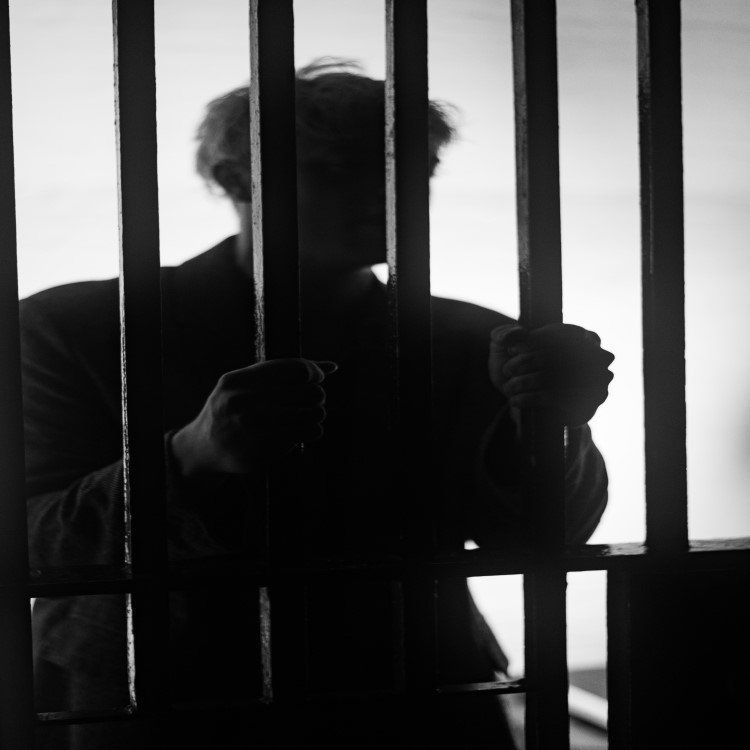The Trouble with Jesus
by Constance Hastings
The trouble with Jesus is he dangerously would take seemingly unlike things and put them together in a scandalous comparison, even if it meant being misunderstood.

“Public scandals are America's favorite parlor sport.” Robert Dallek
Oh, this is great. Nothing like putting a little controversy out there to get attention. We know too well how this works. We’ve seen enough of it in politics, business, even the church. Am I supposed to dive right in and get mud on my face for joining the fight? Between the cat ladies and the weird, I’m just plain tired of this. What’s your point in putting that kind of talk out there in the first place? And don’t tell me that Jesus would have taken a position on this either. Geez, talk about asking for trouble.
Sure, it seems most weeks don’t pass without some whistleblower revealing less than honorable practices or the media pulling out ridiculous statements made by politicians years ago. You hope that whoever you are championing doesn’t get this kind of exposure. But note as well. Jesus also said some things that were more than attention-getters. More than once he sat right on the edge of being scandalous in the way he said things. Today is one of those.
“I assure you, unless you eat the flesh of the Son of Man and drink his blood, you cannot have eternal life within you.” (John 6:53)
Yep, that’s right. Jesus is recorded as saying eat my flesh and drink my blood. It’s not fake news wrapped up in a conspiracy theory. What’s more, in this passage of merely eight verses, he said this or something to this effect five times. The repetition emphasizes how much he meant it. Taken literally, it will turn your stomach, packed with the overtones of cannibalism. What’s more, if it’s sickening to hear in this day and age, those who heard it in first century by the Sea of Galilee were even more repulsed.
There’s Scandal and Then There’s the Scandalous
This is one of those places where you have to put yourself in the shoes of someone not like you. These people were Jews, descendants of Abraham, schooled well in the Levitical law which determined much of their lifestyle. It set them apart from the culture of the day. They didn’t live like the rest of the world and that included what they ate.
It made life complicated. Go to the local market to buy food and you risked partaking in the unclean, pagan practices of the day. Most of the meat, in fact the better choice of meats, had been previously offered in sacrifice to please their foreign gods. In their minds, to eat of this meat would add an unacceptable layer of acceptance or tolerance to idolatry, allowing it as a source of nourishment, thus becoming pagan like it.
What’s more, an attitude toward blood was also integral to their faith practices. Drinking blood was expressly forbidden. (Leviticus 3:17) Blood was considered to be as vital to life as breath. In the formation of the human race, God breathed life, and blood coursing through the body sourced life throughout it. To ingest blood would be to eat what was sacred to God and therefore blasphemous, the desire to diminish God or be like God. So for Jesus to say eat my flash and drink my blood was a sacrilege.
You Are What You Eat
All of this builds on what Jesus had said earlier, “I am the Bread of Life.” The crowd knew well what had just happened a day or so earlier. Five thousand and more people had been fed. It must have been a good meal for they were following him to get a second helping. But then he starts talking like this.
The trouble with Jesus is he dangerously would take two seemingly unlike things and put them together in a scandalous comparison, even if it meant being misunderstood. It’s called a metaphor. The literalism of both is not as significant as the qualities that the two both contain. So for Jesus to refer to himself as bread is to say he was like bread for the hungry soul. To find a filling of that empty soul one needs to take Jesus into one’s life in the similar sense of eating or drinking in order to satiate hunger or thirst. When you think about it, doesn’t that really sound a little tame?
Except…Jesus means it. And he means for those who hear this, 2000 years ago into today, to really get how much he means it. Sure, he starts off saying eat my flesh, but then he escalates into a more graphic depiction. “All who eat my flesh…” becomes not just a polite, etiquette correct bite-size portion but moves into gnaw on my flesh, crunch it between your teeth. It is meant to reflect the desperate, frantic, reckless eating when famished and needing to shovel food into the body to stave off that which will wither it into nothingness, into death.
Violent Words
An apology needs to be offered here. And that apology is for what’s been done to Jesus’ words and thus his message. Granted, the imagery of eating flesh and drinking blood is graphic. But if you’ve been trained and tricked into thinking Jesus was always all meek and mild, the ultimate nice guy, sorry to upset your fruity cart. Translators have done this like they’re trying to protect the Son of Man from some bad press. It doesn’t help though. It only dilutes who he is and what he came to give the world.
Jesus invites those who would be fed by him to gnaw, crunch, bite big and suck hard on his very being. Take him into your heart and soul. Don’t think you’ve got to keep your shirt clean. He wants to feed that part of you that feels, thinks, searches for love and purpose. Get messy with him. He got more than messy for you.
These words that Jesus used in the original Greek were tricky, graphic, somewhat horrific in where they would lead. It brings up an image of wild dogs feeding on a carcass. The violence in that portrayal isn’t pretty. But for the world to change and have hope of a life abundant now, starting now and never ending, it needs to feed deeply on the one who would give all of himself to that violence.
Bread of Life. Eat my flesh. Drink my blood. All are metaphors pointing to a greater truth. Not too much longer after Jesus made this scandalous statement, he raised bread and cup, saying, Eat, drink, this is my body and blood, given and poured out for you. (Luke 22:19-20) The metaphor is extended beyond comparison into a remembrance of his love, his own hungry desire to be the one who is the source of life for others.
“Anyone who eats this bread will live forever.”
Like This? Find More in
The Trouble with Jesus: Considerations Before You Walk Away by Constance Hastings
Available Now Wherever You Love to Buy Books!
Subscribe to The Trouble with Jesus Blog Here.















